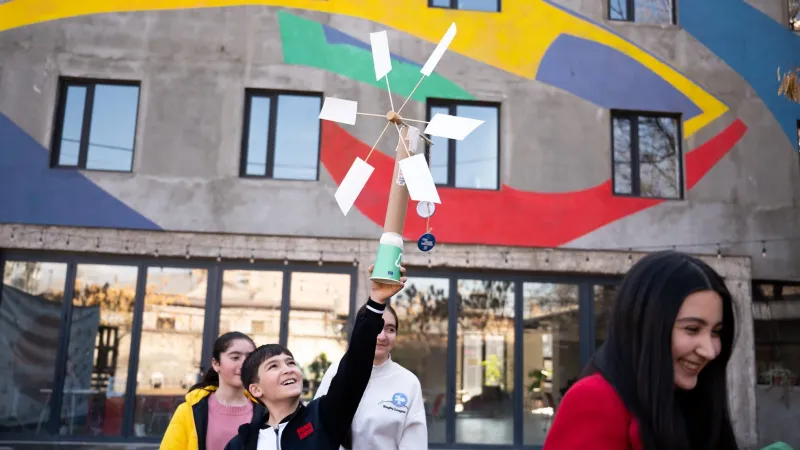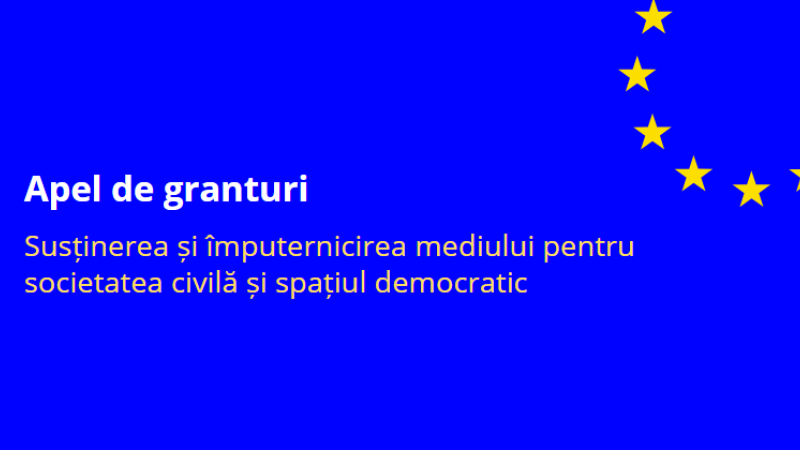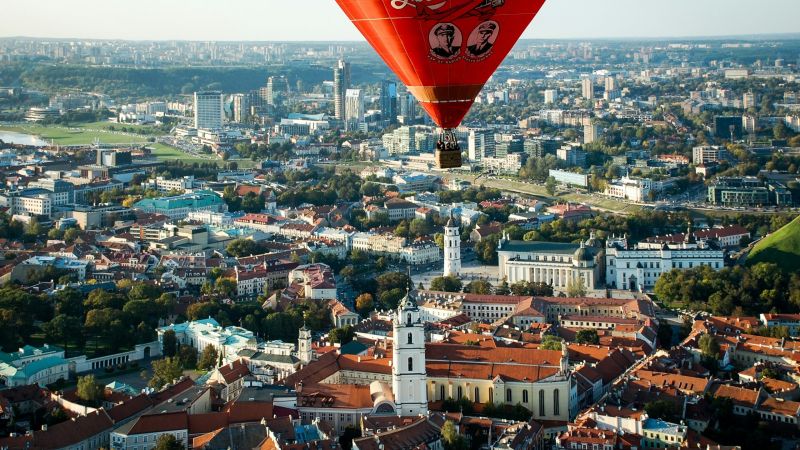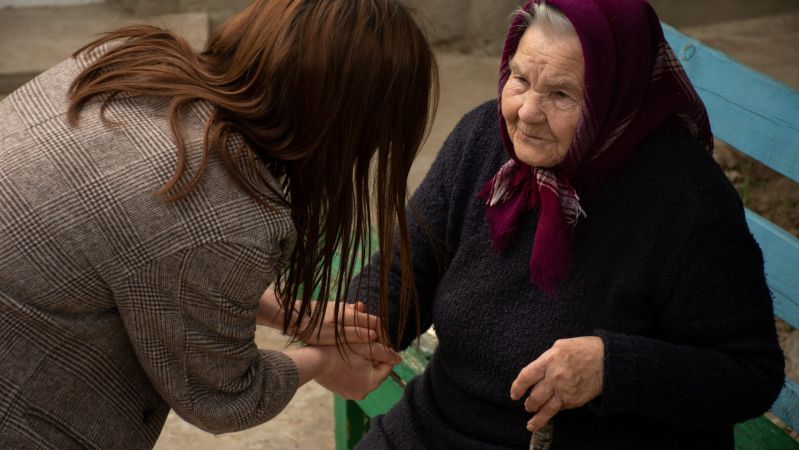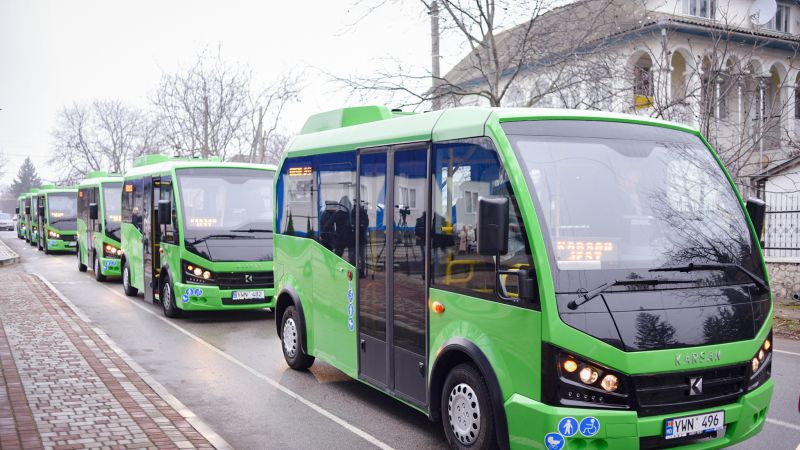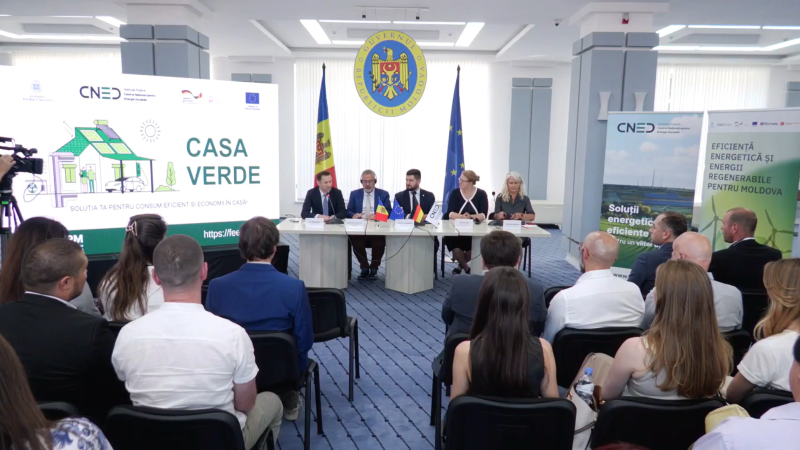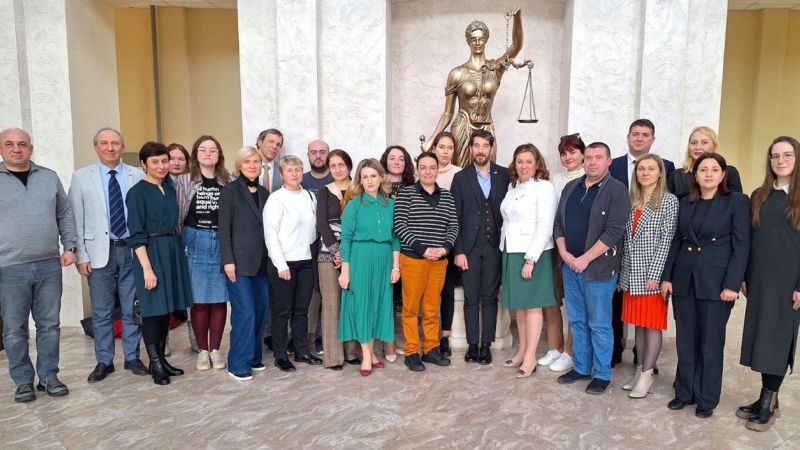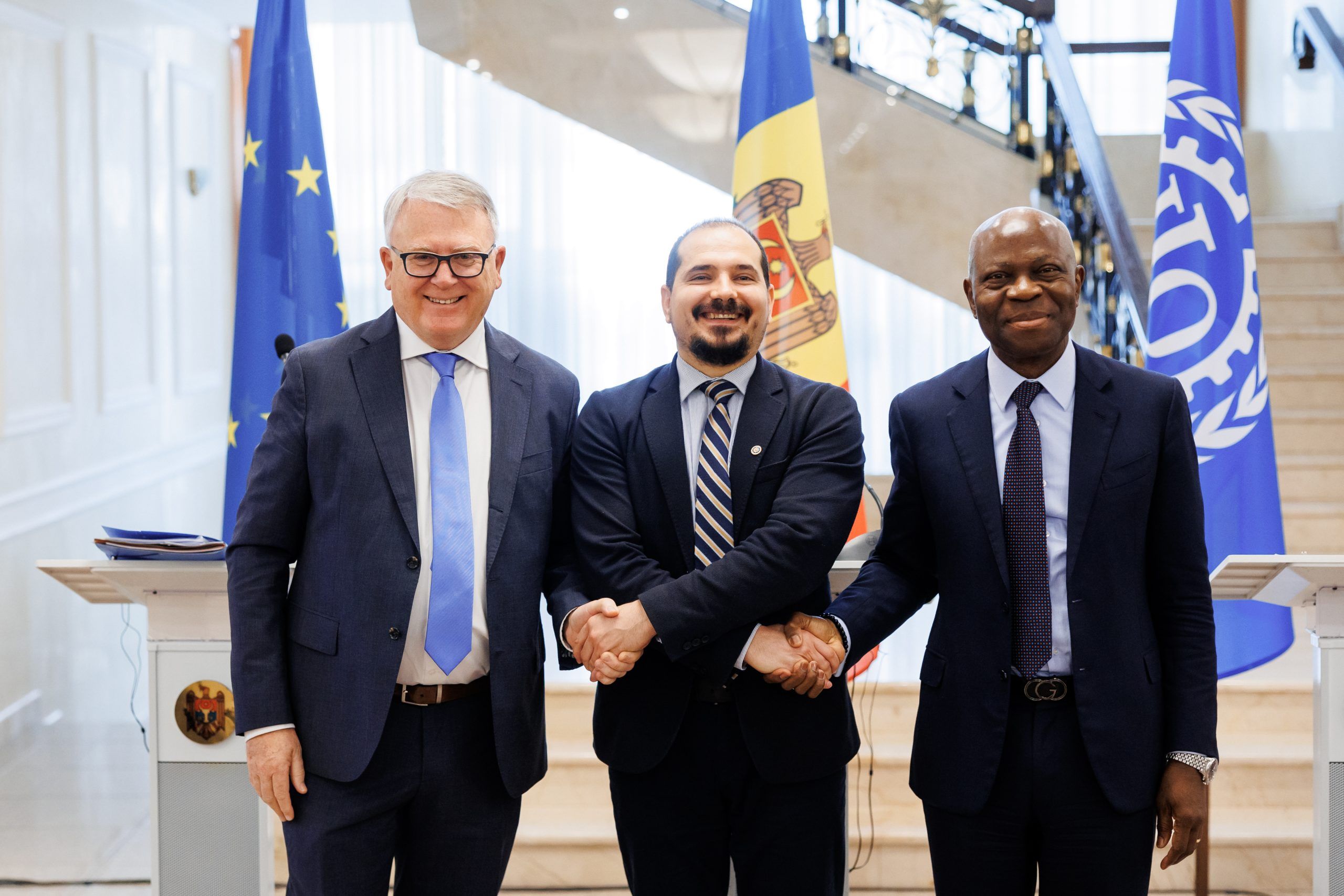
Uniunea Europeană și Organizația Internațională a Muncii oferă suport pentru reformarea și dezvoltarea pieței muncii din Republica Moldova
Chișinău, Republica Moldova. Uniunea Europeană a alocat 2 milioane EUR pentru reformarea instituțiilor-cheie, care reglementează piața muncii din Moldova. În acest sens, astăzi a fost lansat proiectul „Suportul UE pentru o piață a muncii mai incluzivă în Republica Moldova”, implementat de Organizația Internațională a Muncii (OIM).
Scopul proiectului, cu durata de doi ani, este de a îmbunătăți accesul la oportunități mai bune de angajare în Republica Moldova. Conferința de lansare a proiectului a avut loc în cadrul vizitei comune în Republica Moldova a Comisarului European pentru locuri de muncă și drepturi sociale, Nicolas Schmit și a Directorului General al OIM, Gilbert Houngbo.
„După reforma ISM, am lansat o campanie de efectuare a vizitelor inopinate pentru detectarea muncii nedeclarate. În câteva luni doar, ISM a identificat peste 456 de cazuri de muncă nedeclarată și a legalizat peste 80 % din cazuri, față de o medie de 40 de cazuri într-o perioadă similară din ultimii 5 ani. În 2023, Agenția Națională pentru Ocuparea Forței de Muncă a încadrat în muncă peste 11.000 de persoane aflate în căutarea unui loc de muncă și a oferit consiliere profesională la peste 16.000 de persoane, majoritatea elevi și studenți. Aș vrea să le mulțumesc partenerilor noștri de dezvoltare de la Comisia Europeană și de Organizația Internațională a Muncii, cu sprijinul cărora am demarat aceste reforme și continuăm să le implementăm și să obținem progrese vizibile pentru cetățenii noștri”, a declarat Ministrul Muncii și Protecției Sociale, Alexei Buzu.
Unul din obiectivele Proiectului este creșterea performanțelor Ministerului Muncii și Protecției Sociale (MMPS) și ale Agenției Naționale pentru Ocuparea Forței de Muncă (ANOFM) în ceea ce privește prevenirea și combaterea excluziunii de pe piața muncii. Acest obiectiv vizează îmbunătățirea capacităților instituționale ale MMPS și ANOFM de a îndeplini obiectivele stabilite de cadrul politicii de ocupare a forței de muncă. Noul proiect lansat va include diversificarea serviciilor și programelor de ocupare a forței de muncă; extinderea furnizării de servicii personalizate; îmbunătățirea sistemului de management al performanței și îmbunătățirea sistemului de formare internă pentru personalul ANOFM.
„Întrucât Moldova se pregătește să adere la UE, aceasta este o oportunitate considerabilă de a stimula piața muncii și sistemele de protecție socială. În cele din urmă, sursa de bunăstare a Republicii Moldova este reprezentată de oamenii săi: prin investiții în competențele acestora, prin crearea de locuri de muncă de calitate și prin combaterea sărăciei și a excluziunii sociale, se obține un câștig reciproc: pentru incluziunea socială și pentru economie. Sunt mândru să lansez astăzi noul proiect UE-OIM împreună cu DG Houngbo al OIM, pentru a îmbunătăți perspectivele de angajare și a transforma Moldova într-o țară mai incluzivă și mai prosperă, înainte de aderarea la UE”, a declarat Comisarul European pentru locuri de muncă și drepturi sociale, Nicolas Schmit.
Un alt obiectiv al Proiectului este îmbunătățirea performanțelor Ministerului Muncii și Protecției Sociale și ale Inspectoratului de Stat al Muncii (ISM) în ceea ce privește îmbunătățirea condițiilor de muncă și protejarea drepturilor lucrătorilor. Obiectivul se concentrează pe îmbunătățirea capacităților ISM de a-și îndeplini mandatul de control de stat. Aceasta înseamnă revizuirea cadrului juridic și a politicilor interne; planificarea strategică a vizitelor de inspecție; îmbunătățirea sistemului de formare pentru personalul ISM; modernizarea procedurilor ISM și a sistemului informațional; colaborarea strânsă cu partenerii sociali, precum și furnizarea de sprijin material.
Organizația Internațională a Muncii va oferi sprijinul necesar, în materie de advocacy, asistență tehnică, metodologii și instrumente relevante pentru a se asigura că capacitățile ANOFM și ISM sunt îmbunătățite în concordanță cu evaluările instituționale, precum și cu standardele internaționale de muncă și cu ghidurile relevante privind politicile OIM.
„Am venit pentru a doua oară în Moldova pentru a reafirma constituenților noștri tripartiți că OIM este ferm angajată să colaboreze cu ei pentru a îmbunătăți accesul la oportunități de angajare mai multe și mai bune, construind o piață a muncii incluzivă și echitabilă. Aș dori să mulțumesc Comisiei Europene pentru suportul acordat în obiectivul nostru comun de a promova munca în condiții decente în Moldova”, a declarat Directorul General al OIM, Gilbert F. Houngbo.
Potrivit statisticilor, aproape 30 la sută dintre femeile tinere și bărbații tineri din Moldova sunt în categoria NEET (nu au loc de muncă, nu urmează o formă de învățământ și nu participă la activități de formare profesională).
În Republica Moldova, rata de participare a femeilor pe piața forței de muncă este de peste 40%. Acesta este un indicator scăzut în comparație cu cel al Uniunii Europene, unde rata este peste 70%. Din cauza stereotipurilor, femeile sunt supuse unui tratament suspect când aplică pentru locuri de muncă, iar diferența salarială între sexe este de aproximativ 16% în țară.
Totodată, în Republica Moldova, persoanele cu dizabilități întâmpină dificultăți în a găsi și menține locuri de muncă și a se bucura de tratamente echitabile comparativ cu persoanele fără dizabilități. În anul 2023, doar 15,8% dintre persoanele cu dizabilități aveau un loc de muncă oficial. Acest lucru e cauzat parțial de cunoașterea limitată de către persoanele cu dizabilități a dreptului lor la muncă și a oportunităților de muncă, de accesul limitat la reabilitare, consiliere în carieră și formare profesională, de infrastructura inaccesibilă, de nivelul scăzut de încredere în sine în rândul persoanelor cu dizabilități și de reticența angajatorilor de a oferi locuri de muncă acestei categorii de cetățeni.
Reformarea unor asemenea instituții importante, precum Ministerul Muncii și Protecției Sociale și a două agenții publice aflate în sfera sa de competență: Agenția Națională pentru Ocuparea Forței de Muncă și Inspectoratul de Stat al Muncii este esențială pentru ca Guvernul să poată realiza politici coerente de muncă, ocupare și protecție socială, să asigure incluziunea pe piața muncii, condiții de muncă sigure și locuri de muncă productive.
Proiectul își va concentra intervențiile pe îmbunătățirea cadrului legal, politicilor și capacităților pentru un acces sporit la piața muncii și condiții de muncă mai bune în Moldova. De asemenea, se va acorda sprijin pentru a aduce legislația națională cu privire la forța de muncă și muncă în conformitate cu acquis-ul UE și standardele OIM.
Informație de context
Proiectul „Suportul UE pentru o piață a muncii mai incluzivă în Republica Moldova” va fi implementat de OIM, cu un suport financiar total al UE în valoare de 2 000 000 de euro. Acesta are ca obiectiv principal îmbunătățirea accesului la oportunități mai multe și mai bune de angajare în țară și vizează direct 3 beneficiari: Ministerul Muncii și Protecției Sociale, Agenția Națională de Ocupare Forței de Muncă și Inspectoratul de Stat al Muncii. Proiectul își va concentra intervențiile pe îmbunătățirea cadrului legal, politicilor și capacităților pentru un acces sporit la piața muncii și condiții de muncă mai bune în Moldova. De asemenea, implementatorii vor acorda sprijin pentru a racorda legislația națională cu privire la forța de muncă în conformitate cu acquis-ul comunitar al UE și standardele internaționale ale OIM.
